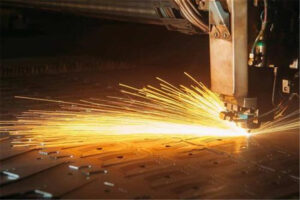Because laser technology has the characteristics of low welding heat input, small effect of welding heat area and resistance to deformation, it has received special attention in the field of aluminum alloy welding. But on the other hand, due to its own defects, there are three major welding difficulties in laser cutting of aluminum alloy. So how to solve it cleverly?
Welding difficulty one: the laser absorption rate of the material is low;
solution:
1. Take proper surface pretreatment process. For example, pretreatment measures such as sandpaper polishing, surface chemical etching, and surface plating. Increase the absorption rate of the material to the laser.
2. Reduce the spot size and increase the laser power density.
3. Change the welding structure so that the laser beam forms multiple reflections in the gap. Facilitate aluminum alloy die casting china

Welding difficulty 2: easy to produce pores and hot cracks
solution:
1. After many welding experiments and researches, it is found that adjusting the laser power waveform during the welding process can reduce the unstable collapse of pores. Changing the angle of laser beam irradiation and applying a magnetic field during welding can all reduce the pores generated during welding.
2. When using YAG lasers, the pulse waveform can be adjusted to control the heat input to reduce crystal cracks.
Welding difficulty 3: During the welding process, the medical machining of the welded joints decrease;
solution:
Due to the unstable pores produced by aluminum alloy welding, the mechanical properties of the welded joints are caused. Aluminum alloys mainly include three elements: Zn, Mg, and Lv. During welding, the boiling point of aluminum is higher than the boiling points of the other two elements. Therefore, some low-boiling alloy elements can be added when welding aluminum alloy elements, which is beneficial to the formation of small holes and the firmness of welding.
to sum up:
The high efficiency of laser cutting china of aluminum alloy makes people look forward to its development prospects. Therefore, some researchers continue to develop new technologies such as laser-arc coincidence technology and dual focus technology to improve the stability of the welding process and improve the quality of the weld.



